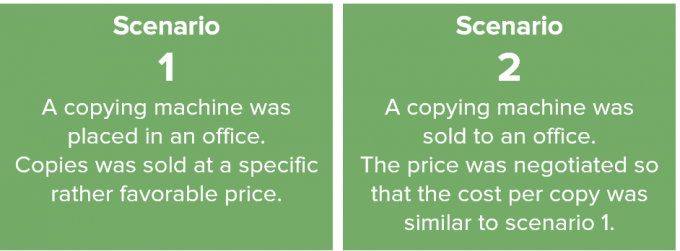
Have you ever really thought about why you do the things you do in life?
Most people would argue that they do things based on their own decisions and that they are in charge.
…is that true?
I am not a psychologist or behaviourist, but I would argue that although we think we are “in charge”, most of us are not… at least not to the extent we think we are.
Let’s look into some examples…
Work / Life balance
How many, in the rich part of society, go to work in order to earn the money they really need?
 Quite often when I do a guest-lecture or give a speech, I ask the audience if they could reduce their shopping and spending with 10% – and still live a good life.
Quite often when I do a guest-lecture or give a speech, I ask the audience if they could reduce their shopping and spending with 10% – and still live a good life.
In most cases more than 95% immediately raise their hand…
This “extremely scientific” research is definitely not representative for all, but it makes at least me wonder – Are people really “In charge”…
A small calculation based on Swedish conditions:
There are 365 days in a year, 104 of these are weekends. Then there are some holidays and a vacation-period. (In Sweden typically 25 days) which adds up to an average of 226 “possible” workdays each year. Full-Time is 8 hours a day which then makes up to 1808 work hours per year.
If people, who immediately raised their hand so easily when asked if they could reduce their spending with 10 % also could consider reducing their wages with 10% this would amount to working 181 hours less per year…
But, “BEWARE”, that would amount to almost an extra month of vacation – having to spend time with your family and friends, going about with your “awful” hobbies or maybe just some “despicable” relaxation… a terrifying scenario, right?
What if I instead had asked if the audience could reduce their spending with 12.5 % – the same analogy would then be that you could work one hour less each workday?
What would that do to YOUR life – would it enable you to spend some more time with your children and your family, would it enable you to spend some more time preparing your meals, maybe even from “the ground up” discarding prefabricated food… would it infact enhance your quality of life…
…from a sustainability perspective, even 10% less consumption would be very beneficial to a stressed out planet, where our current overconsumption of Renewable resources is well above 150% of what our planet can reproduce.
BUT – then of course it would lead to a slightly “slower” lifestyle – good or bad?
Who is in charge…
What would happen if clothes were made to last, so that when you buy a pair of chinos they would withstand the normal wear and tear for much longer than today?
 This would probably lead to less chinos being sold and therefore less chinos being produced and consequently less raw material (resources) being used.
This would probably lead to less chinos being sold and therefore less chinos being produced and consequently less raw material (resources) being used.
But it would also lead to less productivity at the manufacturer and less jobs and maybe even less economic profit for the shareholders.
What if this change of purchase-pattern would happen simultaneously with the example in the previous paragraph…
…oh no wait, less profit – we can’t let that happen – we must find a remedy for that. What if we don’t make them last so long, or what if we change the design very frequently and at the same time promote “all the benefits” of owning the latest version… now that’ll probably do it – “Phew, almost went wrong there…”
And all I wanted was a pair of good quality chinos…
Do you think that You are in charge – do you buy new clothes based on your needs or because “the system” is setup so that people should continuosly purchase new stuff and thereby generate more business, more revenue and more profits… and more waste and more resource-depletion…
- Would you automatically regard your clothes “out of fashion” every season, even if the fashion industry didn’t tell you so…
- Would you throw away your favourite pair of jeans before they are worn out even if the colour or “wash” was still “in fashion”…
- Do you really think that your mood is connected to a specific type of clothes and the colour of your shirt/blouse or is it a constructed reality – can you, infact be happy in a “dull” set of clothes…
- Do you think clothes are made to last or are they “optimized” for a lifespan based on “fashion periodicity”…
So – are You in charge or are you “un-knowingly” controlled by others…
Copier vs. Copier
Recently I read a report from an experiment involving photocopiers.
The two scenarios compared were:

The “purpose” of the experiment – to see whether the manufacturer would place the same machine at the two offices?
What do you think about the outcome…?
In scenario 1 the manufacturer placed their top-quality machine. In this alternative the net profit came from the difference between the income generated by the copies sold and the cost for running the machine – minimum cost was generated by using a machine that needs a minimum of maintenance and repairs, and where “toner”, electricity and other supplies where used as efficiently as possible.
In scenario 2 the manufacturer sold their normal quality machine, advertised and priced to be an “attractive alternative”. In this alternative the net profit for the manufacturer was generated from a combination of the selling price, the service-agreement and the supplies sold.
These two alternatives show significant differences from a sustainability perspective.
Is there, in scenario 2, any incentive to reduce the environmental impact?
Is there, in fact, any benefit at all for the manufacturer to enhance the quality and performance of the machine in this scenario?
(Provided that machines from other manufacturers have similar quality and price)
Which scenario do you think is the most common?
What happens if we then add an industry of copy-machine repair companies, toner distributors etc. – will this help pushing towards a higher level of sustainability?
So – Who is in charge…?
Take a look around – look at the smartphones, lap-tops, TV’s, ink-jet printers, light-bulbs, cars and other stuff – do manufacturers generally promote “long-lasting” high quality products or do they want you to buy new one’s more frequently?
Let’s face it – in our current capitalistic system with its addiction to infinite growth the one “in Charge” is the one that can create the highest economic profits.
If this demands that WE – the people – consume more and more stuff to generate more growth and more economic profits – that’s the way it’s going to be…
Because you can…
Some years back, on a journey to the US, I had made a reservation of the smallest available rental car, since public transportation was non-existing in the area I was visiting.
(Not very “uncommon” in the US, as I understand it…)
 When I arrived to the car-rental, a bit early, the man at the desk said that my car had not arrived yet, but they could provide me another one at a minor upgrade cost.
When I arrived to the car-rental, a bit early, the man at the desk said that my car had not arrived yet, but they could provide me another one at a minor upgrade cost.
Instead of waiting, I agreed to the small upgrade and was handed the keys – in the parking-lot I then realized that the vehicle provided was a giant 4×4 kind of monstrous piece of metal. I immediately went back to re-negotiate, but no smaller vehicle was at hand.
Later that evening, meeting up with my US-colleagues, driving this ridiculous vehicle (travelling alone with one small suitcase) I had to ask them; Who would ever need a vehicle like this, unless you are an entrepreneur or run a multi-people transportation service of some kind?
My two colleagues looked at each other for a short while, shrugged their shoulders and said:
– He doesn’t get it!
What is it that I don’t get, I asked them.
– You don’t buy that kind of car because you need it, you buy it because you can!
This was probably one of the most ridiculous statement I have heard in a long time, but it surely reflects another rather “stupid”, but not unfamiliar behaviour – status hunting.
Why would it ever be “High Status” to waste money while simultaneously destroying our Climat and the Future a little “Extra” – It just demonstrates an utter “Lack of respect!”
…in this specific case, would You argue that people do things based on their own decisions and that they are in charge or…?
So – why do YOU do the things YOU do in life?
Some people argue that embracing a Sustainable lifestyle means making a lot of sacrifices and give up on a lot of things in life.
The Stone age didn’t end because we ran out of stones…
What if a less consumption-oriented lifestyle would actually bring an opportunity to really live and enjoy a “rich and fulfilling” life, a life with focus on your passion…
Break Your Unsustainable pattern – take charge of Your decisions and choose differently!